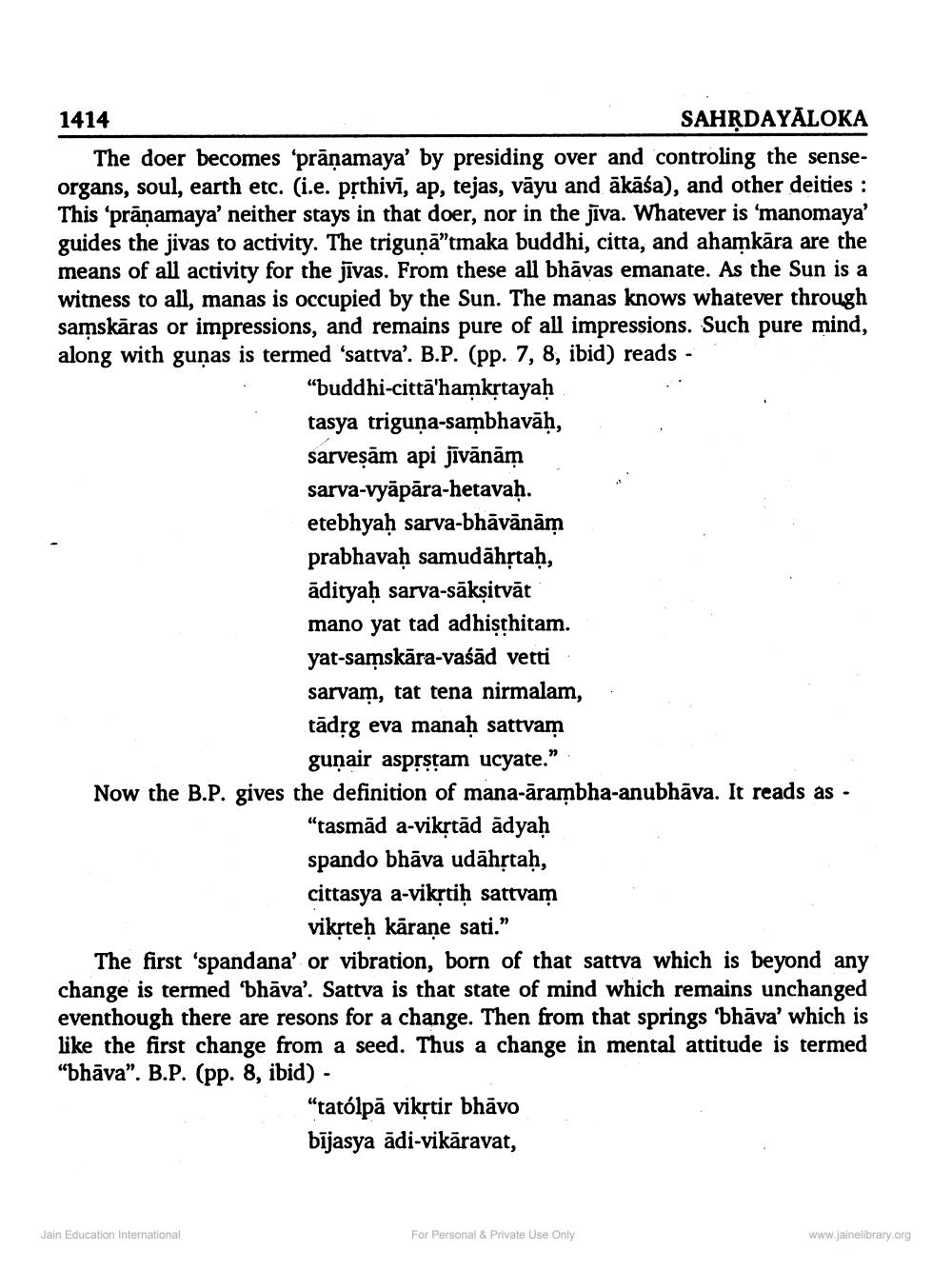________________
1414
SAHĶDAYĀLOKA The doer becomes 'prānamaya' by presiding over and controling the senseorgans, soul, earth etc. (i.e. přthivi, ap, tejas, vāyu and ākāśa), and other deities : This ‘prānamaya' neither stays in that doer, nor in the jiva. Whatever is ‘manomaya' guides the jivas to activity. The triguņā”tmaka buddhi, citta, and ahamkāra are the means of all activity for the jīvas. From these all bhāvas emanate. As the Sun is a witness to all, manas is occupied by the Sun. The manas knows whatever through
kāras or impressions, and remains pure of all impressions. Such pure mind, along with gunas is termed 'sattva'. B.P. (pp. 7, 8, ibid) reads -
“buddhi-cittā'hamkrtayaḥ tasya triguņa-sambhavāḥ, sarveșām api jīvānām sarva-vyāpāra-hetavaḥ. etebhyaḥ sarva-bhāvānām prabhavaḥ samudāhstaḥ, ādityaḥ sarva-sākṣitvāt mano yat tad adhisthitam. yat-saņskāra-vaśād vetti sarvam, tat tena nirmalam, tādņg eva manah sattvam
guņair asprstam ucyate.” Now the B.P. gives the definition of mana-ārambha-anubhāva. It reads as -
"tasmad a-vikrtād adyaḥ spando bhāva udāhstaḥ, cittasya a-vikstiḥ sattvam
viksteḥ kärane sati." The first 'spandana' or vibration, born of that sattva which is beyond any change is termed 'bhāva'. Sattva is that state of mind which remains unchanged eventhough there are resons for a change. Then from that springs 'bhāva' which is like the first change from a seed. Thus a change in mental attitude is termed "bhāva". B.P. (pp. 8, ibid) -
"tatólpā viktir bhāvo bījasya ādi-vikāravat,
Jain Education International
For Personal & Private Use Only
www.jainelibrary.org




